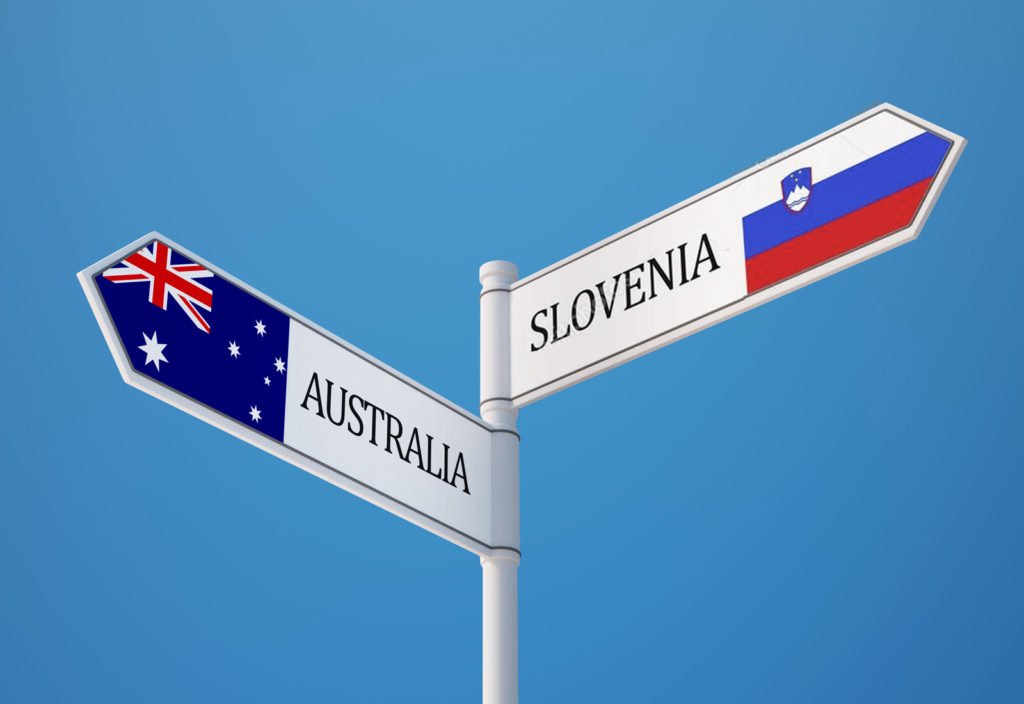
Victorian Institute of Secondary Education/VISE
HSC Slovenian Group 2
Following a name change of the accreditation body, and a redefined framework of responsibility, to Victorian Institute of Secondary Education/VISE, Victoria conducted a major educational reform in 1978 and 1979, which affected the accreditation of Slovenian. Initially there was a delay of two years before the accreditation procedure could begin.
Slovenian became the first and pioneer subject, so-called HSC Group 2 subject under the new Higher School Certificate assessment scheme. It became a model for all subsequently accredited languages (e.g. Arabic and Macedonian). As such it was subject to intense scrutiny on the part of the accrediting authority, VISE. The educational reform was intended to replace the assessment oriented approach in Year 12 subjects, with an educationally sounder approach, which combined and integrated the process of learning with the process of assessment.
Slovenian Group 2 Higher School Certificate document contained a new set of curriculum and assessment principles and requirements, and an extensive bibiliography of references and background reading texts, as well as a sample of a written examination. Slovenian became the first subject to be accredited under the new scheme.
VISE established new guidelines for accreditation of Year 12 courses. It was intended that the secondary school system be opened up with the introduction of new subjects, called group 2 subjects, to allow for new innovative courses. This necessitated common rules when presenting for accreditation. A one year detailed course of study had to be developed which included the following:
-the objectives of the course
-the way in which objectives of the course are related to the main ideas or themes
-the intended learning outcomes of the course in terms of knowledge, skills and attitude
-the course content areas and the detail in which they will be studied
-the relationship between, and integration of, any theoretical, practical and field
-experience components of the course
-why the course is felt to be of an appropriate educational standard
-the student resources (for example textbooks, equipment, reading lists) that are considered necessary.
It was an exciting and challenging way of envisaging and planning a course. From my point of view it was exactly the right kind of course for a student of Slovenian background growing up in Australia. I envisaged that the language would be taught along with the culture, as the context within which the language exists and develops. In other words, the language would be taught as far as possible through texts on traditions, historical events, stories, poems and songs. At the senior and HSC level literary texts would provide the aesthetic dimension of the language and concepts expressed in it. Learning about Slovenian language and culture in this way would also stimulate interest in Australian culture, develop an awareness and appreciation of literature in general and encourage a comparative approach to languages and literatures.
The HSC Slovenian Course was developed and submitted to the Head of Curriculum and Assessment Branch in 1979. The proposal was accepted and passed on to the Accreditation Sub-committee, which included the course-developer, VISE liaison officer and three members of appropriate experience and background.
The Sub-committee worked through the submission and prepared the text for publication. In 1981 the first group of students completed the course. They were Robert Lotrič, Andrej Potočnik, Sigrid Vrtačič, Helen Vučko, Andrea Vučko. Their teacher was Jožica Paddle-Ledinek.
According to accreditation requirements all VCE courses were to be reviewed in 3 to 5 years. Feedback by the teacher and the students was required. In 1983 the Review Committee, consisting of three members, prepared survey forms and detailed questions on all areas of the course. All the students who had completed the course participated in the review. The response was encouraging. Students liked the course and most students liked Slovenian poetry best. In their opinion grammar was the most difficult but also the most essential part of the language course. The responses indicated that no changes to the course design were necessary. It was accredited by VISE till 1990.
